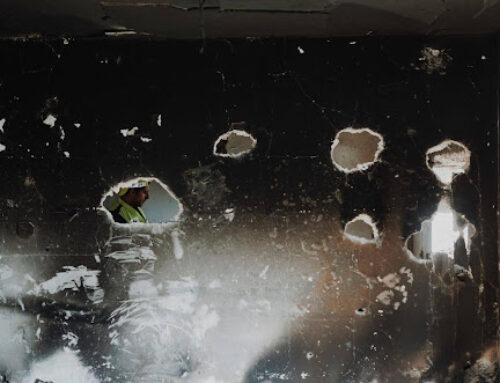When I went to sleep on Tuesday night, the seeming parity between Likud and the Zionist Union was aggravating, but they confirmed my initial suspicions: the likelihood of a national-unity government. Still, I wondered how it could be, that Bibi was able to bridge the gap so effectively? I hadn’t shared the initial euphoria of many in Tel Aviv that Bibi was out the door; I knew that even with a larger number of mandates, Buji Herzog would have trouble cobbling together a center-left coalition. Nevertheless, there was cause for some optimism.
When I awoke, I was greeted with the shock of a complete rout of the center-left, with the Likud taking a resounding lead of 6 mandates. The worst news of all: Meretz Chairwoman Zahava Gal-On’s decision to resign following Meretz’s showing of only 4 seats, barely squeaking by the threshold. Thankfully, this decision has been reversed, as of today, with the discovery that surplus and soldier votes earned Meretz an extra seat.
As I wrote a few days ago, Gal-On had taken on the thankless task of trying to keep at bay the party’s falling numbers, shrinking in large part due to Meretz supporters deciding to vote “strategically” for the Zionist Union. Despite her best efforts, the party suffered, although it thankfully survived the cut-off; the silver lining here is that the highly racist and fascist Yachad party failed to make it into the Knesset. Her initial decision to resign to make way for MK Tamar Zandberg (with whom I chatted for our Podcast) was bittersweet, and not completely unjustified. Tamar represents the “new generation” of the left in Israel: she is smart, articulate and achieved a great deal, even within the truncated term she was given. Even a relative of mine who is not a fan of Meretz, spoke highly of Gal-On: “She’s a very classy, honest politician. It’s rare that you would find someone in Israeli politics today who would have done such a thing”.
Yet having more Israeli Arab MKs in the Knesset and Gal-On remaining, does not hide the painful truth: the ostensible ease for Bibi to form an incredibly right-wing coalition, perhaps the most extreme in Israel’s history, and the level of isolation Israel might incur as a result. But my relatives are more concerned about the domestic ramifications. One relative, a student in Rehovot studying for her PhD and a Labor supporter, was near tears: “I’ll just have to wait that much longer to be able to afford an apartment”. Her mother, too worried about the accession of the haredim to a possible new coalition, and the rolling back of laws recently passed under the auspices of Yesh Atid (which were never really implemented to begin with). But when I tried bringing up the subject of the ICC and UN, they simply ignored me or hastily changed the subject. I believe that the left’s biggest challenge in the months and years ahead is to convince Israelis that what the international community thinks is not only relevant, but essential to its long-term survival.
The reality, of course, is much more complex than the simple creation of a narrow, right-wing government. Netanyahu is the ultimate politician, and one does not reach the (unfortunate) heights that he has by acting in a short-sighted fashion. It’s tempting to assume that he’ll assemble a coalition with his natural partners like Naftali Bennett, Avigdor Lieberman, et. al., leaving the center and the left to rot away in the opposition. But, like 2009 and 2013, he also understands that his government must be palatable to a certain degree to the international community, particularly the US and the EU, and thus requires a fig leaf of sorts to offset criticism.
Ehud Barak once served that purpose, breaking apart Labor in order to sit with Bibi as his Defense Minister. Then Tzipi Livni of Hatnua and Yair Lapid of Yesh Atid, the so-called savior of the middle class, joined the coalition with great alacrity; Livni’s role as negotiator with the Palestinian Authority in an ersatz peace process helped create a temporary respite for Bibi. Although Buji Herzog has sworn that the best place for Labor is in the opposition, Livni may very well join Netanyahu as a means of staving off political oblivion. History, in Israel at least, seems to repeat itself multiple times over, against the better judgement of its politicians.
But anyone who thinks that Bibi is going to have an easy time of it, is deluding themselves. A right-wing government will continue to tarnish the country’s image and give succor to BDS and like-minded movements. The US and EU, secretly praying for he Prime Minister’s defeat, are sharpening their knives, with plans of their own. The former, angered by the blatantly racist rhetoric and fear-mongering Bibi used to steal right-wing votes, and his “official” renunciation of a two-state solution, has left the Obama administration considering action in the UN Security Council. Whether this takes the shape of an American-sponsored peace plan or simply an unwillingness to veto upcoming resolutions aimed at Israel remains to be seen. The Europeans have a much clearer option: the labeling of goods that come from the territories or the wholesale sanctioning of all business done beyond the Green Line.

Prime Minister Benjamin Netanyahu greets Likud activists on election night, Tuesday, March 17th.
And lest anyone think that there is anything truly ‘natural’ about a union of right-wing forces in Israeli politics, they should remember what transpired during the 2013 elections. Then Naftali Bennett of the settler-friendly Jewish Home came to blows with the ultra-orthodox parties over conscription of haredi youth, and the cutting of welfare benefits. While Bennett is not as hated as Yair Lapid has become in the eyes of the ultra-orthodox, their relations remain strained.
So too, do we see issues with the addition of Moshe Kachlon’s Kulanu party to the coalition. Kachlon, a former Likudnik who started his own party with the goal of breaking apart Israeli monopolies, has taken a much more moderate tack regarding the peace process. His right-hand man, Michael Oren, an American Israel who served as ambassador to the US, has indicated the party’s embrace of a Jewish and democratic state that can only be achieved by a withdrawal from the West Bank. How Kachlon will square this with a coalition that refuses to budge an inch from the settlements remains to be seen.
In short, there’s much to be upset about, but despair is hardly an option, nor is disaster a guaranteed outcome. The intervention of the US, a long time coming, may finally force the Prime Minister’s hand, in some critical way. And the new government will likely be plagued by infighting. Indeed, many pundits are already arguing that it’s unlikely to last its full term. Here’s hoping that they’re right; in the mean time, the left has its work cut out for it.






Nevertheless I do not see the ‘landslide’ that bibi gloated about his decisive win of the rightists. Nothing is established yet of who will be next prime minister, all option are on the table , I don’t believe it would be a narrow-minded led right-wing government, this would be impossible and puts out Israel at its most dangerous risk. Why not a left coalition including the joint list? This would be damper to all those Israeli haters and racist and global terrorists. Or am I dreaming and not feasible. Yes 3rd option national unity gov’t but this clearly would mean ineffective and renewing ‘status quo’ , considered probably easiest solution yes , better or best no way!!! What is going to be ?????????????????